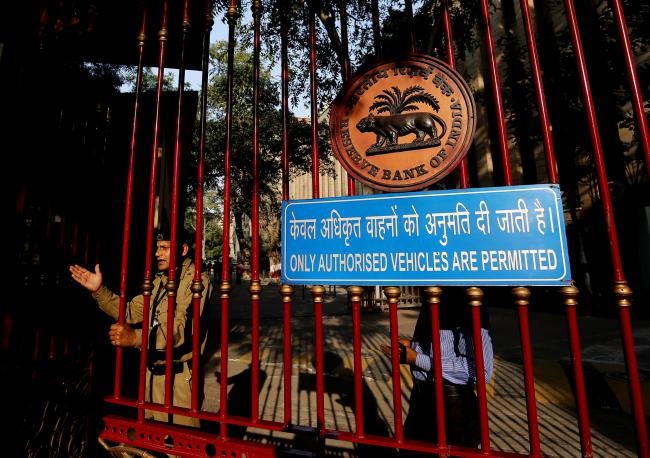(Bloomberg) -- Speculation is swirling in India’s local media on who will be the next central bank governor after Urjit Patel’s abrupt exit on Monday.
There’s no obvious successor yet, and given the cloud under which Patel left -- amid a public fight with the government over the Reserve Bank of India’s autonomy -- investors are naturally anxious about who will take the helm.
The first step is for Prime Minister Narendra Modi to appoint an interim governor, as has been the practice in the past, with that post likely to go to N. S. Vishwanathan, currently the most senior of the four deputies at the central bank. He could be in the job for several months until the government names Patel’s successor. In 2016, it took more than two months for then-deputy governor Patel to be named as a replacement for central bank chief Raghuram Rajan.
Here’s a look at some of the names making the rounds in the local press:
N.S. Vishwanathan, Deputy Governor, RBI
Vishwanathan joined the central bank in 1981 and was appointed deputy governor for a three-year term in July 2016. An RBI board member said it’s traditional for the longest-serving deputy governor to take the helm until a permanent successor is found, which would make Vishwanathan the likely choice. Prior to becoming a deputy governor, he was an executive director at the central bank. Holding a Master’s degree in Economics from Bangalore University, his responsibilities at the RBI include banking regulation and risk monitoring.
Subhash Chandra Garg, Economic Affairs Secretary
A top bureaucrat in the Finance Ministry, Garg’s appointment would be a very clear signal from Modi’s administration that it wants greater control over the central bank. Garg, who is currently on the RBI’s board, has been pushing to change the central bank’s governance structure and get it to transfer more of its excess capital to the state. A former executive director at the World Bank, Garg has opposed the RBI using interest rate hikes to bolster the currency, which is Asia’s worst-performer this year.
Subir Gokarn, Executive Director at IMF
A former RBI deputy governor between 2009 and 2012, Gokarn has been India’s top official at the International Monetary Fund since 2015. At the central bank, he oversaw monetary policy, research, financial markets, communications, and deposit insurance. Holding a PhD in Economics from Case Western Reserve University in Cleveland, Ohio, Gokarn was also director of research at Brookings India and chief economist at Standard & Poor’s Asia Pacific.
Rajiv Kumar, Secretary, Department of Financial Services
A top bureaucrat in the financial services division of the Finance Ministry, Kumar has been focused on cleaning up the banking system since his appointment last year, including having to deal with fraud at a large state-owned bank and a debt default at a shadow lender. Prior to his current post, he worked at the personnel department, where he introduced an online system to improve bureaucracy. Kumar has a B.Sc degree in Zoology and a Master’s degree in public policy.
Shaktikanta Das, Former Finance Ministry Official
A former economic affairs secretary from 2015 to 2017, Das worked closely with the central bank. He is currently a member of the Finance Commission of India, and the government’s representative at the Group of 20 summits. Modi initially brought Das into the Finance Ministry to head up the revenue department, later moving him to economic affairs, where he helped to spearhead the prime minister’s controversial demonetization drive in 2016.
Hasmukh Adhia, Former Finance Secretary
Adhia, who has a PhD degree in yoga, retired as the top bureaucrat in the Finance Ministry last month. Finance Minister Arun Jaitley said Adhia declined several plum positions to pursue his favorite passions of spirituality and yoga, and spend more time with his son. Adhia had worked with Modi when the latter was chief minister of Gujarat state. Considered a close ally to the prime minister, he was one of the few people who knew about the surprise cash ban in 2016. Even though he was the top bureaucrat in the Finance Ministry, he hardly spoke on subjects other than taxation.
